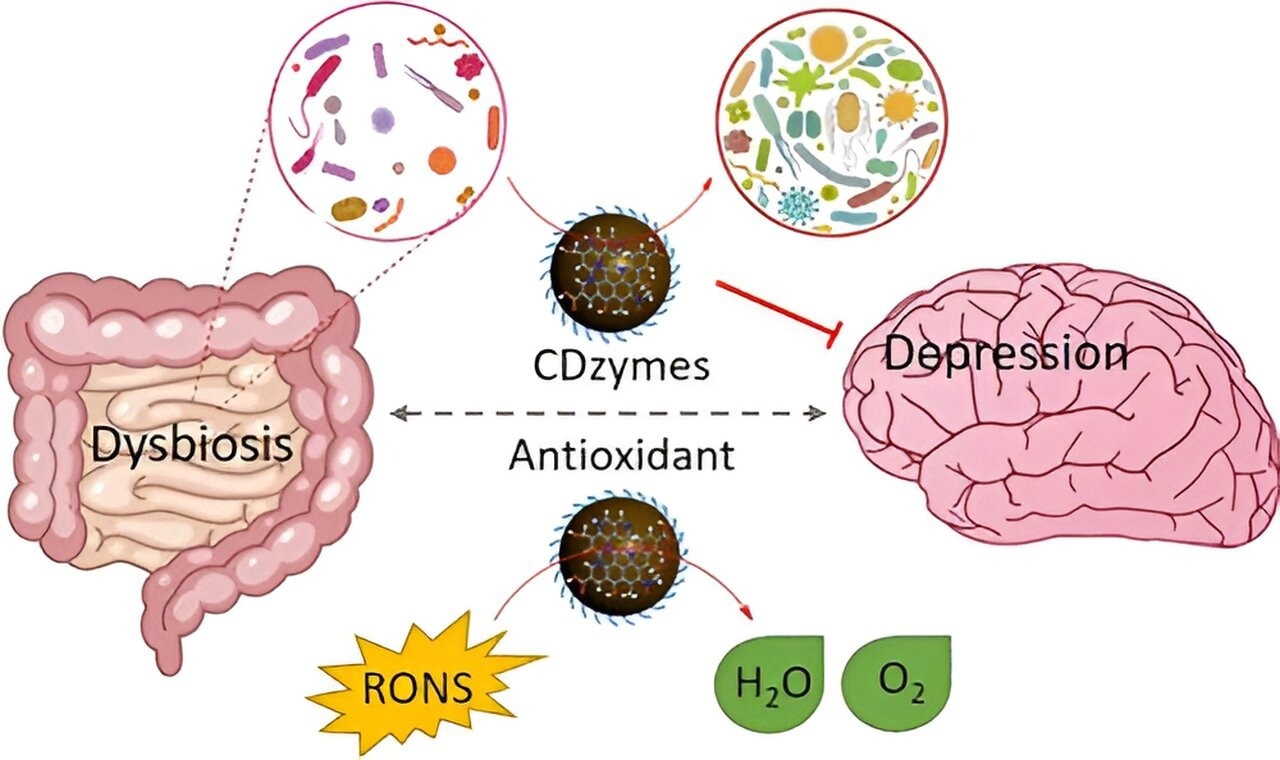
Image Credit: Langmuir (2024). DOI: 10.1021/acs.langmuir.4c02481
Diagnosing and treating depression can be challenging. Increasing evidence suggests that chemical imbalances causing oxidative stress throughout the body are among the factors that influence the onset and severity of depression.
In addition to diminishing quality of life for those affected, mental health conditions like depression also threaten public health and hinder economic growth.
A buildup of reactive oxygen and nitrogen species, which can overwhelm the body's natural defenses, is a potential hallmark of depressive disorder. This oxidative stress disrupts gut health by altering the microbial balance, leading to inflammation and changes in brain and neuronal function.
To address this issue, Jihong Huang, Weiwei He, and their team developed enzyme-like compounds with potent antioxidant properties. These compounds reduced reactive species, balanced gut microbes, and alleviated depression.
To ensure antioxidant activity while maintaining biocompatibility, the researchers polymerized glucose and the amino acid histidine to create carbon dot nanozymes, or CDzymes. These CDzymes effectively neutralized various reactive species in solution and cultured mouse nerve cells without causing harmful effects.
Next, the researchers used a rat model of depression called chronic and unpredictable mild stress (CUMS) to study the effects of CDzymes. They compared four groups of rats: healthy controls, untreated CUMS rats, and CUMS rats treated with either CDzymes or gamma-aminobutyric acid (GABA), an antidepressant that inhibits nerve signaling.
Rats treated with either CDzymes or GABA showed reduced depressive behaviors compared to untreated CUMS rats, exhibiting more reward-seeking, curiosity, willingness to explore, and resistance to despair. These behavioral improvements were also linked to increased levels of several depression-related neurotransmitters found in brain tissues.
The researchers then examined the effects of CUMS and treatment on the rodents' gut microbiome by analyzing fecal microbes. Depressed animals showed a significant reduction in microbial richness and diversity, but treatment with either GABA or CDzymes restored these measures to similar levels.
Additionally, the microbial composition in treated rats' feces closely resembled that of healthy rats, highlighting the connection between gut health and mental health. This microbial restoration also enhanced the metabolism of several amino acids essential for nerve signaling.
Overall, these findings suggest that CDzymes are as effective as GABA in animal studies, offering a promising alternative therapeutic option for treating depressive disorders.
Journal Reference:
Jia, H., et. al. (2024) Antioxidant Carbon Dots Nanozymes Alleviate Stress-induced Depression by Modulating Gut Microbiota. Langmuir. doi.org/10.1021/acs.langmuir.4c02481